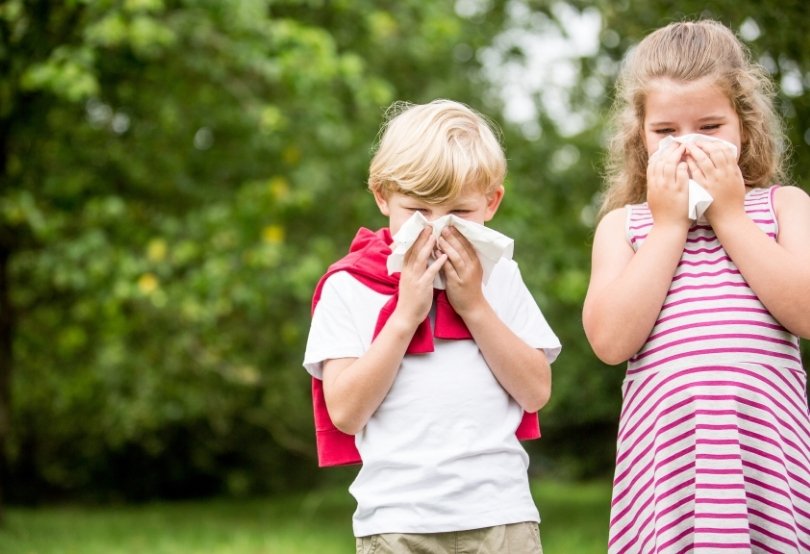
What is Pet Allergy?
Pet allergy occurs when the immune system reacts to proteins found in an animal’s skin cells, urine, or saliva. These proteins, known as allergens, can trigger allergic reactions in sensitive individuals. Pet allergies are commonly associated with animals like cats, dogs, and rodents, but other pets can also cause allergic reactions. Contrary to popular belief, it is not the animal’s fur that causes the allergy but the proteins that are present in their dander (dead skin flakes), saliva, and urine.
People with pet allergies often experience symptoms such as sneezing, coughing, nasal congestion, and itchy or watery eyes when exposed to pet allergens. In some cases, exposure to pet allergens can also trigger asthma symptoms, such as wheezing and shortness of breath.
Who Gets Pet Allergy?
Pet allergies can affect individuals of all ages, but they are more common in people who have a family history of allergies, asthma, or eczema. Those who are prone to other allergic conditions, such as hay fever or dust mite allergies, are also at a higher risk of developing pet allergies.
While pet allergies can develop at any age, they often begin in childhood. However, adults can also develop pet allergies later in life, especially after prolonged exposure to animals.
Which Animals Can Cause Allergies?
Many animals can cause allergic reactions, with the most common pets that trigger allergies being:
– **Cats:** Cat allergens are particularly potent and can remain in the environment for months. The allergenic proteins are found in a cat’s saliva, skin, and urine.
– **Dogs:** Dog allergens are similar to those of cats and can be found in a dog’s dander, saliva, and urine.
– **Rodents:** Mice, hamsters, and guinea pigs can also cause allergies. The allergens are typically present in their urine and bedding.
– **Birds:** Pet birds, such as parakeets and cockatiels, can produce allergens through their droppings and feathers.
– **Rabbits and Ferrets:** These animals can also produce allergens in their dander, urine, and saliva.
Even animals that are considered hypoallergenic, such as certain breeds of dogs or hairless cats, can still cause allergic reactions in sensitive individuals due to the presence of allergenic proteins in their saliva or skin.
Diagnosis of Pet Allergy
Diagnosing a pet allergy typically involves a thorough medical history, a physical examination, and specific allergy tests. The healthcare provider may ask about the patient’s symptoms, their timing in relation to exposure to pets, and any history of other allergies or asthma.
Common diagnostic tests for pet allergy include:
1- Skin Prick Test
During a skin prick test, small amounts of pet allergens are applied to the skin, which is then lightly pricked to allow the allergen to enter. If the patient is allergic to the animal, a raised, red bump (hive) will appear at the test site within 15 to 20 minutes.
2- Blood Test
Blood tests, such as the specific IgE test, measure the presence of antibodies that react to pet allergens. These tests are particularly useful for individuals who cannot undergo skin testing due to skin conditions or the risk of severe allergic reactions.
Symptoms and Treatment of Pet Allergy
Symptoms of pet allergies can range from mild to severe and may include:
– Sneezing
– Runny or stuffy nose
– Itchy or watery eyes
– Coughing
– Wheezing or shortness of breath (asthma symptoms)
– Skin rashes or hives after direct contact with the animal.
Pet Allergy Treatment Can Be Done as Follows:
The treatment of pet allergies focuses on reducing exposure to allergens and managing symptoms. Common treatments include:
– **Antihistamines:** These medications help reduce sneezing, runny nose, and itching.
– **Nasal Corticosteroids:** These are effective in treating nasal inflammation and congestion.
– **Decongestants:** These medications help relieve nasal congestion caused by allergies.
– **Allergy Shots (Immunotherapy):** Immunotherapy involves regular injections of increasing amounts of the allergen to desensitize the immune system over time. This treatment may be recommended for individuals with severe or persistent pet allergies.
In addition to medications, lifestyle modifications can help reduce exposure to pet allergens and alleviate symptoms.
Methods to Prevent Pet Allergy
Preventing pet allergies often involves minimizing exposure to the allergens. Some effective strategies include:
– **Limiting Pet Access:** Keep pets out of bedrooms and other areas where you spend a lot of time.
– **Frequent Cleaning:** Vacuum carpets, rugs, and upholstery regularly to remove pet dander. Use HEPA filters in your vacuum and air purifier to trap allergens.
– **Regular Pet Grooming:** Bathe and groom pets frequently to reduce the amount of dander they shed.
– **Washing Hands:** Always wash your hands after handling pets or coming into contact with pet bedding, toys, or food.
Frequently Asked Questions About Pet Allergy
Can Pet Allergies Be Cured?
There is no cure for pet allergies, but the symptoms can be managed with medications, lifestyle changes, and in some cases, immunotherapy. Avoiding exposure to pet allergens is the most effective way to prevent allergic reactions.
Can You Develop Pet Allergies Later in Life?
Yes, pet allergies can develop at any age, even in individuals who have previously lived with pets without any issues. Changes in the immune system or prolonged exposure to allergens can trigger allergic reactions later in life.
Are Hypoallergenic Pets Safe for People with Allergies?
No pet is completely hypoallergenic, as all animals produce proteins in their dander, saliva, and urine that can cause allergies. However, some animals may produce fewer allergens, making them more tolerable for individuals with mild allergies.
Why Choose Us?
Our clinic specializes in allergies and allergy testing, and we stand out in the field of health tourism with the high standards of service we provide. Here are the key reasons why you should choose us:
Expert Doctor Team
At our clinic, we have highly experienced doctors at the professor level who are experts in the field of allergies. With years of experience in allergy treatment and testing, we provide the most accurate diagnosis and treatment processes. Our professor is skilled in managing even the most complex allergy cases and delivering the most effective solutions.
Cutting-Edge Allergy Tests
Your health is our top priority. In our clinic, we use state-of-the-art allergy testing technologies that are recognized globally. This allows us to obtain the most accurate and rapid results, ensuring that your treatment plans are created in the best possible way. Our tests are conducted according to international standards.
Comfort and Luxury Services
We don’t just focus on treatment; we also aim to provide a comfortable experience. During your treatment, we offer five-star hotel accommodations to ensure you feel at home throughout the process. Your comfort is guaranteed with the luxurious services we provide.
Transfer and Transportation Convenience
For patients coming from abroad or from other cities, we offer VIP transfer services. From the airport to our clinic, and from our clinic to your hotel, we are with you every step of the way. We take care of every detail to ensure your comfort and safety.
Personalized Approach
Every patient’s health condition is unique, and we tailor our solutions to meet each individual’s specific needs. Throughout your treatment process, we stay closely connected with you, and our professional team is by your side every step of the way.






